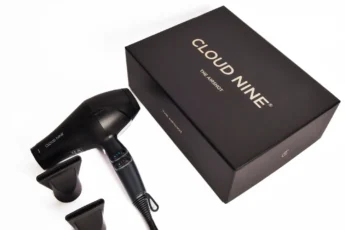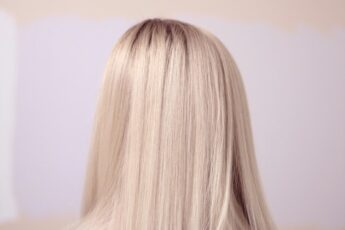You ever notice those tiny white flakes on your shirt and think, “Oh no… not again”? Yeah, me too. Dandruff can sneak up on you, make your scalp itch like crazy, and leave you wondering what you did wrong. And let me just say this now—you’re not dirty, you’re not gross, and you’re definitely not alone.
Let’s sit down and talk about what causes dandruff in the hair. I’ll walk you through everything I’ve learned, what might be going on with your scalp, and how to handle it without losing your mind (or your confidence).
Table of Contents
Key Takeaways
- Dandruff is caused by dry scalp, excess oil, fungus, or product irritation
- It’s not a sign of being dirty or unclean
- Lifestyle habits, stress, and weather can all make it worse
- Dandruff doesn’t mean you’re unhealthy — it means your scalp needs balance
- Simple routines and the right products can help a lot
- Don’t scratch, don’t panic, and don’t overload your scalp
- If nothing works, seeing a dermatologist is a smart next step
What Dandruff Actually Is
Dandruff is basically your scalp shedding skin—but it’s doing it way more than usual. Instead of tiny skin cells that fall off and disappear, you get clumps of dead skin cells that stick together and fall off as white or yellowish flakes. Sometimes your scalp feels itchy, oily, or even tight.
And here’s the important part: dandruff isn’t always about cleanliness. It’s not just a “you didn’t wash your hair” thing. It’s more about what’s happening on your scalp—how it reacts to oils, fungus, products, stress, and everything in between.

What Causes Dandruff in the Hair
Let’s break down the most common culprits behind dandruff.
1. Dry Scalp Issues
When your scalp doesn’t have enough moisture, it becomes dry and flaky. You’ll usually notice small, white flakes and tightness. It gets worse during colder months or if you’re using shampoos that strip away natural oils.
2. Excess Oil and Sebum Buildup
The other extreme—an oily scalp—can also lead to dandruff. If your scalp produces too much sebum (oil), it can trap dead skin and create clumps of flakes. You might see larger, stickier flakes that feel greasy.
3. Fungal Overgrowth (Malassezia)
There’s a natural yeast-like fungus called Malassezia that lives on everyone’s scalp. But sometimes, especially when your scalp is oily, this fungus grows out of control. That leads to irritation, redness, and—you guessed it—dandruff.
4. Irritating Hair Products
Some shampoos and conditioners have harsh ingredients like sulfates, parabens, or alcohol. These can dry out or inflame your scalp. Even heavily scented products can trigger a reaction. Ever feel itchy right after trying something new? That could be why.
5. Infrequent or Excessive Washing
Not washing enough can let oils and skin cells build up. But washing too much strips your scalp of oils and leads to dryness. It’s all about balance.
6. Product Buildup and Poor Rinsing
Using too many leave-in products or not rinsing out your conditioner properly can leave residue behind. That residue clogs your scalp, and over time, it turns into flakes.
7. Hormonal Shifts
Changes in hormones—during your period, pregnancy, or stress—can cause your scalp to go haywire. More oil, more sensitivity, more flakes.
8. Weather Changes
Cold, dry air? Your scalp dries out. Hot, humid weather? Your scalp gets oilier. Either way, the changing environment can push your scalp out of balance.
9. Tight Hairstyles or Head Coverings
Anything that traps heat and sweat against your scalp for too long can irritate it. That includes wigs, hats, or tight buns that don’t let your scalp breathe.
Also Read: Scalp Exfoliation Benefits: Why Your Scalp Might Just Need a Fresh Start
Lifestyle Habits That Can Make It Worse
Sometimes it’s not just the scalp. It’s what you’re doing around it.
- Not washing pillowcases often – Dirt and oil build up fast
- Overusing dry shampoo – It clogs follicles and traps flakes
- Eating habits – Sugar, dairy, and junk food can trigger inflammation
- Lack of sleep and too much stress – Yes, your scalp feels it too
Dry Scalp vs Dandruff: What’s the Real Difference?
It’s easy to confuse these two because they both flake, but here’s how to tell:
- Dry scalp: Flakes are small, white, and dry. Your scalp feels tight or itchy.
- Dandruff: Flakes are larger, oily, and sometimes yellowish. The scalp might feel greasy or irritated.
And guess what? You can have both at once.
What It Feels Like (And Why It’s So Frustrating)
It’s more than just the flakes. Dandruff can be a full-on confidence killer. The itching shows up at the worst times. You scratch in public and feel embarrassed. You check your shoulders constantly. You avoid black shirts. And every little flake feels like a sign that something’s wrong with you.
I’ve been there. And it’s exhausting.
Is Dandruff Contagious? Dirty? Embarrassing? Let’s Clear That Up
- No, dandruff is not contagious. You can’t “catch” it from someone.
- No, dandruff doesn’t mean you’re dirty.
- And no, you don’t need to feel ashamed.
Your scalp is skin. It gets irritated. It reacts. And just like your face can break out, your scalp can flake. It’s normal.
How It Affects Your Hair and Mood
Let’s talk hair.
Dandruff doesn’t directly cause hair loss, but the constant itching and inflammation can damage the scalp. And damaged scalp = weaker hair.
And then there’s the emotional side.
- You don’t want anyone to notice.
- You overthink how close someone is standing.
- You dread styling your hair.
It’s heavy. And that mental load? It matters just as much as the flakes themselves.
What Helped Me When Dandruff Took Over
You don’t need a shelf full of products. You just need the right ones.
Here’s what helped me:
- Gentle shampoos with zinc pyrithione or salicylic acid
- Tea tree oil-based products (but always diluted!)
- Cutting back on heavy creams and leave-ins
- Washing my hair every 3-4 days
- Doing a scalp massage during shampooing
And most of all? Patience. It didn’t clear up overnight, but it did get better.
Dandruff Triggers I Didn’t Notice Until Later
Let’s talk about sneaky triggers:
- Heat styling – Curling irons and straighteners dried out my scalp
- Hard water – Made my hair and scalp feel coated
- Hair dyes – Even semi-permanent ones caused flare-ups
- Skipping conditioner – Left my scalp tight and dry
I had to experiment. But paying attention helped me connect the dots.
What You Shouldn’t Do (Even If You’re Tempted)
Trust me, I’ve tried it all. Here’s what not to do:
- Don’t scratch – You’ll only make it worse
- Don’t oil your scalp thinking it’s dry – It can feed fungus
- Don’t layer ten products – Keep it minimal
- Don’t jump from shampoo to shampoo every week – Give your scalp time
Less is often more when it comes to dandruff.
Simple Dandruff-Friendly Hair Routine You Can Try
Want a routine that doesn’t make your scalp freak out? Start here:
- Wash your hair every 3–4 days with a mild anti-dandruff shampoo
- Massage your scalp gently for 1–2 minutes
- Rinse thoroughly, especially behind your ears and nape
- Use a lightweight conditioner, but avoid the roots
- Dry with a soft towel and avoid heat if you can
- Sleep on a clean pillowcase and tie your hair loosely if needed
Check Out: Is Washing Your Hair Daily Bad?
When You Should See a Dermatologist
Sometimes, dandruff doesn’t budge no matter what you do. That’s when it’s time to call in a pro. See a dermatologist if:
- Your flakes are yellow, greasy, or crusty
- You’ve tried multiple products with no results
- Your scalp is red, painful, or swollen
- It’s affecting your mental health
You deserve help that works.

Conclusion
So, what causes dandruff in the hair? A lot of things. It could be dryness, oiliness, fungus, stress, or just the wrong shampoo. But one thing’s for sure—it’s not your fault.
You’re not gross. You’re not weird. You’re just human.
And with the right approach, you can manage it. Gently. Confidently. Without giving up on yourself.
You’ve got this.
Frequently Asked Questions
Can dandruff go away on its own?
Sometimes, if it’s mild and triggered by dry weather. But most of the time, you need to treat the root cause.
Is dandruff contagious?
Nope! You can’t catch dandruff from anyone.
What’s the fastest way to treat dandruff?
Use a proven anti-dandruff shampoo, simplify your hair routine, and be consistent.
Can shampoo make dandruff worse?
Yes, especially if it’s too harsh, heavily fragranced, or filled with drying alcohols.



